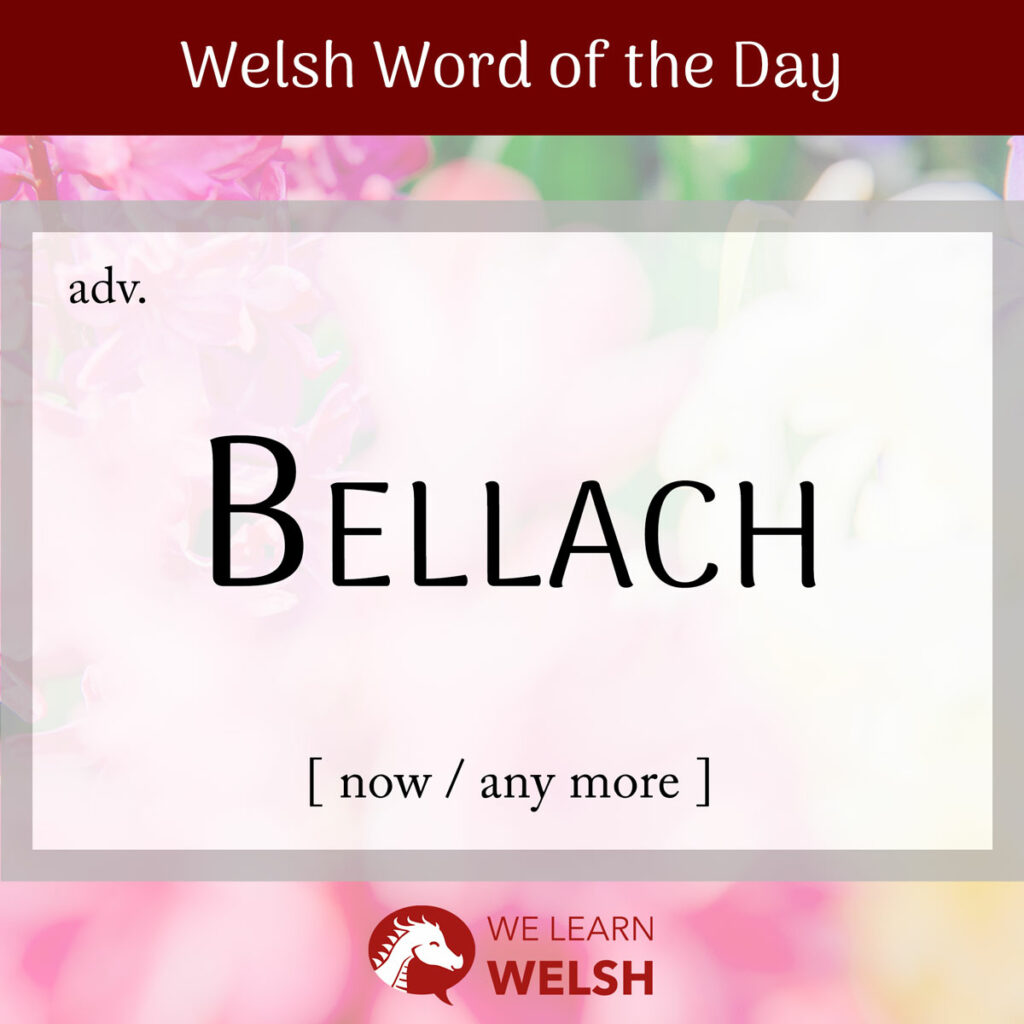Yes, I know what you’re thinking – before we dive in, you’re probably wondering, isn’t “now” in Welsh just nawr or rŵan? Well, it turns out there’s actually a third option – bellach – and its meaning isn’t quite as straightforward as those familiar four-letter words!
bellach
now / any more
But let me backtrack a bit. Bellach is an adverb that comes from the comparative form of the adjective pell (meaning “far” or “distant”), which becomes pellach. As a time adverb, it tells us when something happens, and it is susceptible to the soft mutation (where p becomes b).
Unlike nawr and rŵan, which refer to the present moment in a general sense, bellach suggests – and I quote the Pocket Modern Welsh Dictionary – “a change in circumstances from what was previously the case.” In other words, it provides a contrast between “now” and “then.” In English, we express this concept with phrases like now or nowadays.
For example, if you used to work as a nurse but now work as a teacher, native Welsh speakers would use bellach to describe that change in circumstance, rather than nawr or rŵan.
Ro’n i’n arfer gweithio fel nyrs, ond athrawes dw i bellach.
I used to work as a nurse, but now/nowadays I’m a teacher.

Let’s take a look at a few more examples:
- Mae hi bellach yn byw yn Aberystwyth. = She now lives in Aberystwyth. (But she used to live somewhere else.)
- Mae’r hen siop wedi cau, ac mae bwyty newydd yno bellach. = The old shop has closed, and now there’s a new restaurant there.
- Rydyn ni bellach wedi gorffen y gwaith. = We have now finished the work. (We hadn’t finished it before.)
- Bellach, mae mwy o bobl yn dysgu Cymraeg nag erioed. = Nowadays, more people are learning Welsh than ever before. (Before not many people were learning Welsh.)
In the negative, however, the meaning changes to (not) any more or no longer, making it a synonym for mwyach or more informally, dim mwy. Even in the negative, bellach implies a change in circumstance.
- Dw i ddim yn gweithio yma bellach. = I don’t work here any more. (But I used to)
- Dydy hi ddim yn mwynhau’r rhaglen hon bellach. = She doesn’t enjoy this program anymore. (But she used to)
Dw i ddim yn bwyta cig bellach.
I don’t eat meat any more.


